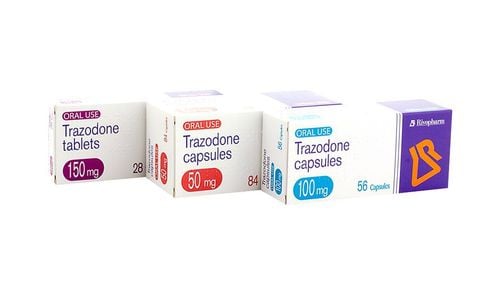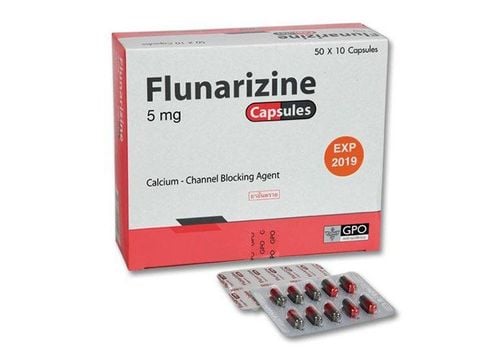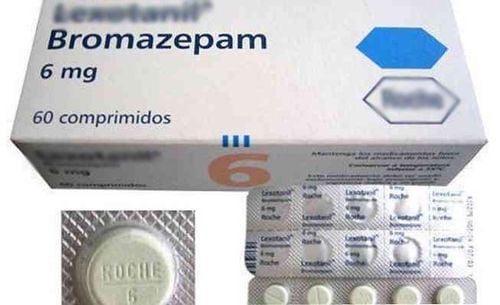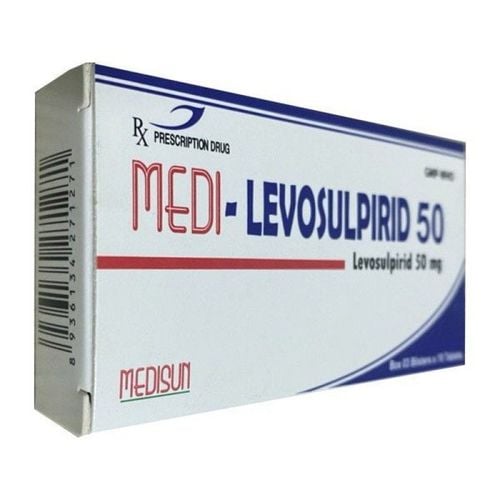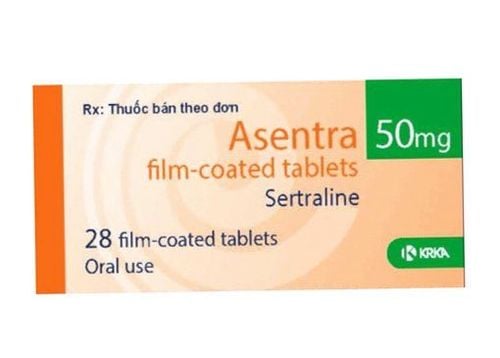Unspecified Anxiety Disorder refers to anxiety or phobic symptoms that do not fully meet the criteria for any specific anxiety disorder but are significant enough to cause distress and impairment to the individual.
1. Definition of Unspecified Anxiety Disorder
This condition describes individuals who may not satisfy the diagnostic criteria for a specific anxiety disorder. For instance, unexpected panic attacks are a diagnostic criterion for panic disorder. However, some individuals may experience panic attacks with limited symptoms that do not fully meet this criterion. Despite not qualifying for a specific diagnosis, such anxiety symptoms warrant attention if they cause significant distress or functional impairment. In such cases, the individual might be diagnosed with Unspecified Anxiety Disorder.
Essentially, Unspecified Anxiety Disorder includes anxiety-like symptoms that cause severe distress or functional impairment, but there is insufficient information to categorize them under a specific anxiety disorder.
This scenario often occurs in emergency room settings, where detailed history-taking and comprehensive mental health evaluations may not be feasible.
2. Symptoms of Unspecified Anxiety Disorder
The primary symptom of anxiety disorders is excessive fear or anxiety. Anxiety disorders may also present with difficulty breathing, trouble sleeping, restlessness, and problems concentrating. Specific symptoms vary depending on the type of anxiety disorder the person has.
Common symptoms associated with Unspecified Anxiety Disorder include:
- Panic, fear, and excessive worry.
- Feelings of dread, despair, or imminent danger.
- Sleep disturbances.
- Inability to stay calm or remain still.
- Cold hands or feet, sweating, tingling sensations, or numbness.
- Shortness of breath.
- Rapid or shallow breathing (hyperventilation).
- Increased heart rate.
- Dry mouth.
- Nausea.
- Muscle tension.
- Dizziness.
- Repetitive and uncontrollable thoughts about a problem (rumination).
- Inability to concentrate.
- Intentional or obsessive avoidance of feared objects, places, or situations.

3. Causes and Risk Factors
The exact cause of Unspecified Anxiety Disorder remains unclear. It likely results from a complex interplay of various factors. Risk factors include:
- Genetics: Anxiety disorders may run in families.
- Brain chemistry: Research suggests anxiety disorders may involve faulty pathways in the brain that regulate fear and emotion.
- Stressful environments: Experiencing or witnessing stressful events can contribute significantly.
- Substance withdrawal or abuse: Certain drugs can be used to mask or alleviate anxiety symptoms. Anxiety disorders frequently co-occur with substance abuse.
- Medical conditions: Some heart, lung, and thyroid conditions can mimic or exacerbate anxiety symptoms.
- Mental health history: Having another mental health disorder, such as depression, increases the risk of anxiety disorders.
- Childhood trauma: Emotional, physical, or sexual abuse or neglect in childhood is associated with anxiety disorders later in life.
- Trauma: Experiencing a traumatic event increases the likelihood of post-traumatic stress disorder (PTSD), which can trigger panic attacks.
- Negative life events: Stressful or adverse life events, such as losing a parent in childhood, elevate the risk of anxiety disorders.
- Chronic illness or severe health conditions: Persistent worry about personal or loved ones’ health or caregiving responsibilities can be overwhelming and anxiety-inducing.
- Substance misuse: Alcohol and illicit drug use heighten the risk of anxiety disorders. Some individuals use these substances to mask or reduce anxiety symptoms.
- Childhood shyness: Early-life shyness and avoidance of unfamiliar people or places correlate with social anxiety disorder in adolescents and adults.
- Low self-esteem: Negative self-perception may contribute to social anxiety disorder.
4. Diagnosis of Unspecified Anxiety Disorder
In addition to questions about "What is Unspecified Anxiety Disorder?" many are also curious about diagnostic methods. If you exhibit symptoms, your doctor will review your medical history and conduct a physical examination. They may perform tests to rule out other health conditions that could explain the symptoms. No specific lab test exists to diagnose anxiety disorders.
If no physical causes for the symptoms are identified, you may be referred to a psychiatrist or psychologist. These professionals will ask questions and use diagnostic tools to assess whether you have an anxiety disorder.
Doctors consider the duration and severity of symptoms when diagnosing. It is crucial to inform your doctor if anxiety interferes with your ability to enjoy or complete daily tasks at home, work, or school.

5. Treatment for Unspecified Anxiety Disorder
Various treatment options can reduce and manage the symptoms of anxiety disorders. Often, individuals require both medication and therapy for effective treatment.
Medications commonly prescribed for anxiety disorders include:
- Antidepressants: Modern antidepressants, such as selective serotonin reuptake inhibitors (SSRIs) and serotonin-norepinephrine reuptake inhibitors (SNRIs), are often the first-line treatments for anxiety. Examples include escitalopram (Lexapro) and fluoxetine (Prozac) for SSRIs, and duloxetine (Cymbalta) and venlafaxine (Effexor) for SNRIs.
- Bupropion: Another antidepressant used for chronic anxiety, which works differently than SSRIs and SNRIs.
- Other antidepressants: These include tricyclic antidepressants and monoamine oxidase inhibitors (MAOIs). They are less frequently used due to side effects, such as low blood pressure, dry mouth, blurred vision, and urinary retention.
- Benzodiazepines: These may be prescribed for acute anxiety episodes or persistent anxiety. They provide rapid relief but can lead to dependence. Examples include alprazolam (Xanax) and clonazepam (Klonopin). These drugs are typically supplemental and not recommended for long-term use.
- Beta-blockers: Commonly prescribed for high blood pressure, these medications can alleviate physical symptoms of anxiety, such as rapid heart rate and tremors. They are useful during acute episodes of anxiety.
- Anticonvulsants: Although primarily used to prevent seizures in epilepsy, these medications may reduce specific anxiety symptoms.
- Antipsychotics: Low doses of these drugs may enhance the efficacy of other treatments.
In addition to medication, psychotherapy can help individuals explore the emotional underpinnings of their behaviors. Common therapies include:
- Communication therapy: A trained mental health professional listens to and discusses your thoughts and feelings, helping you understand and manage them alongside your anxiety disorder.
- Cognitive-behavioral therapy (CBT): This popular therapy teaches individuals to transform negative or panic-inducing thoughts and behaviors into constructive ones. It also prepares them to manage fears and concerns systematically. Some centers offer family-focused CBT sessions.
6. Managing Symptoms of Unspecified Anxiety Disorder
The following tips can help control or reduce symptoms:
- Adhere to your treatment plan. Abruptly discontinuing medication may cause unpleasant side effects or trigger anxiety symptoms.
- Limit caffeine consumption, including coffee, tea, cola, energy drinks, and chocolate.
- Avoid recreational drugs and alcohol.
- Maintain a balanced diet and regular exercise.
- Ensure adequate sleep.
- Practice relaxation techniques and stress management.
- Journal your thoughts before the day ends.
- Challenge and manage negative thoughts.
- Socialize with friends and engage in meaningful conversations.
- Consult your doctor before using over-the-counter or herbal remedies.
In summary, Unspecified Anxiety Disorder involves anxiety-like symptoms that cause severe distress or functional impairment but lack sufficient information for classification under a specific anxiety disorder. If you suspect signs of anxiety or depression in yourself or loved ones, seeking professional advice and treatment is crucial to prevent potential adverse outcomes.
To arrange an appointment, please call HOTLINE or make your reservation directly HERE. ou may also download the MyVinmec app to schedule appointments faster and manage your reservations more conveniently.
References: mayoclinic.org, ncbi.nlm.nih.gov, webmd.com




